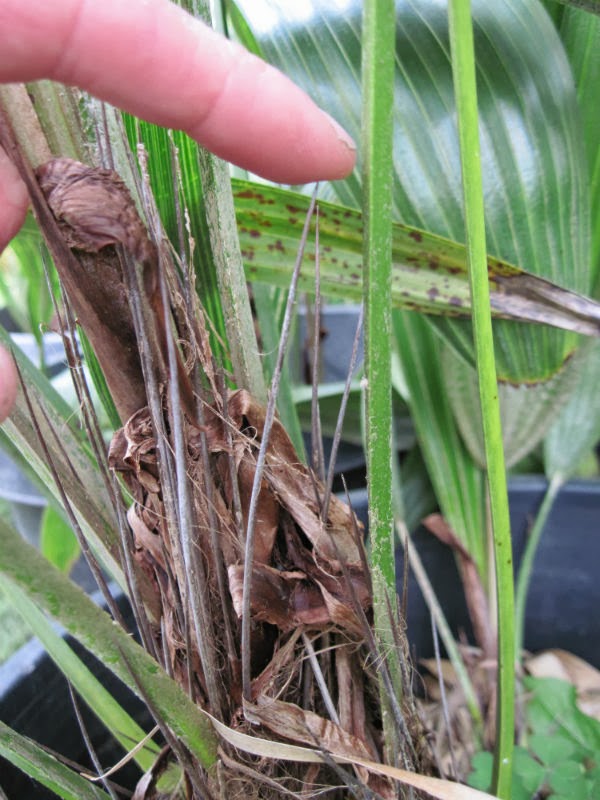The Cistus Nursery,
located north of downtown Portland, OR, specializes in Mediterranean and
tropical plants, which happen to grow in two of my favorite climates. The
nursery is located on Sauvie Island, a rural landscape of farmland, but once inside the
nursery, you feel surrounded by a tropical jungle.
The nursery is laid out
with a central area connected to four different sections. This section called
Xerophyte, a plant that needs very little water, lends itself to dry zone types.
This nursery really allowed me to explore the scientific naming of plants, an often-challenging
subject when looking for a particular plant, since there is often a
scientific name for classification and a common name.
Each of the four sections
has a protected enclosure.
As you can see by this plant
stake this plant is an Agavaceae (ah-gav-AY-see-ee), a subfamily of monocotyledons or monocots,
which is one of two major groups of flowering plants known as angiosperms, the
other group is known as dicotyledons or dicots. It does get confusing, but
basically under Agavaceae are agave and yucca. This particular plant is called
Agave americana ‘Yellow Ribbons,’ but you can see from the label the agave could fall under different names.
This is an Arecaceae (ar-ek-AY-see-ee) –
Chamaerops humilis var cerifera – blue form Mediterranean Fan Palm. Arecaceae, also known as Palmae, which has everything to do with palms, is one of my
favorite forms of flora as you can see by the plants I'm drawn to.
Pinaceae – Pinus ponderosa
– Willamette Valley Collection ponderosa pine. This naming is pretty straight
forward, with the family name of Pinaceae under the order of Coniferales, one
can easily deduce the basic words, pine and conifer.
Arecaceae – Brahea
decumbens. Brahea is a genus of palms in the Arecaceae family, commonly known
as Hesper palms.
Zonal Denial, a section of
bamboo and hardy tropical flora.
Arecaceae – Trachycorpus
fortunei – Chinese windmill palm.
Arecaceae – Rhapidophyllum
hystrix – needle palm. Be careful with this one.
This post is one of three
for Cistus Nursery. You can find out more about Cistus Nursery by visiting their site and clicking here.
I used
the following sites to research the names and species of plants in this post: Dave’s Garden, Encyclopædia Britannica, Wikipedia, University of Hawaii, University of Wisconsin-Madison, Palmpedia, Missouri Botanical Garden
























No comments:
Post a Comment